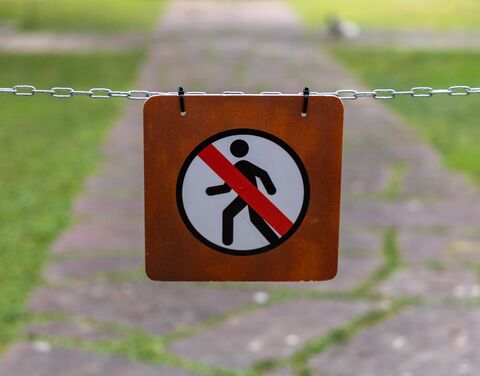
Privacy is a valuable asset. Your apartment and premises with a similarly intimate meaning are thus particularly protected under the law. In Switzerland, if you violate this law you are committing the offense of unlawful entry.
Has someone entered your home without permission or accused you of doing so? In these cases, it is important to know what you can – and should – do. In Switzerland, unlawful entry is a crime and can entail legal consequences if it is reported. Find out more here.
Maybe it’s happened to you before: You got the address wrong and are suddenly standing in a stranger’s yard or hallway. Fortunately, such mistakes usually don’t lead to a conviction. However, at first glance it could lead to the impression that you entered unlawfully. This offense is categorized as an offense against liberty, in other words a “felony and misdemeanor against liberty.” This is because in Switzerland, every person is free to choose who enters their own house, building, or property, and who can stay there.
The Swiss Criminal Code governs unlawful entry in Article 186 as follows:
“Any person who, against the will of the lawful occupants enters a building, an apartment, a self-contained room within a building, an enclosed area, courtyard or garden forming a direct part of a building, or a clearly demarcated workplace or, despite requests from the lawful occupants to leave, remains in such a location, shall be liable on complaint to a custodial sentence not exceeding three years or to a monetary penalty.”
An “enclosed area” in this context is a place that is demarcated by a fence or similar type of demarcation. In some cases, Article 186 also applies to more than apartments and houses: Tents, houseboats, and other places in which people live or stay can also fall under the protection of the Swiss Criminal Code in exceptional cases. Likewise, parts of a building or even individual rooms can be protected, for example in a hotel.
Unlawful entry as a crime is based on domiciliary rights. It allows private individuals and companies to exercise control over their property, what they own, or their premises, and to deny access or expel someone from the area. It is about protecting people's privacy and allowing them to exercise free will. To really be deemed as unlawful entry in accordance with the law in Switzerland, certain criteria must be met:
Although the prerequisites for unlawful entry are clear, the points must be clearly met. Here are a few practical examples for a better understanding of the criminal act.
A special case exists for rented apartments and houses. On the one hand, these are the property of the landlord. On the other hand, the latter grant tenants – more or less – unrestricted use of the premises. Regardless of the specific details of the individual rental agreement, both sides can thus be guilty of unlawful entry.
In some cases, even if they enter parts of the building they don’t have authorization for, tenants can be violating the law.
Incidentally, the same applies for the other side: Landlords who remain in the rented property without the express consent of the renting party are considered to have committed unlawful entry as outlined by applicable law in Switzerland. Landlords must respect the privacy and undisturbed use of the rented premises. Entering a rented apartment without prior notice is thus only allowed if there is a valid reason, such as immediate danger. In addition, landlords are not authorized to evict tenants themselves or without a court order or remove them from the apartment. Likewise, however, tenants must also leave the corresponding premises after termination. If they do not do so, this is also deemed to be unlawful entry.
Unlawful entry accounts for a relatively small number of reported crimes in Switzerland. In 2020, approximately 5,116 cases met the criteria. For comparison: The police registered 32,819 cases of breaking and entering in the same year. Depending on the severity of the unlawful entry, you may risk imprisonment. This can amount to up to three years and may even be extended according to the Swiss Criminal Procedure Code by the other criminal offenses committed within the scope of the act of unlawful entry.
And speaking of punishment: Criminal proceedings for unlawful entry are only possible if a crime is reported. Only the lawful occupant, usually the injured party, has the right to file a report and complaint. If you are accused of unlawful entry, it is advisable to obtain legal counsel to respond appropriately to the accusations. Having legal protection insurance is advantageous in any case so that you can benefit from the expertise of professionals.